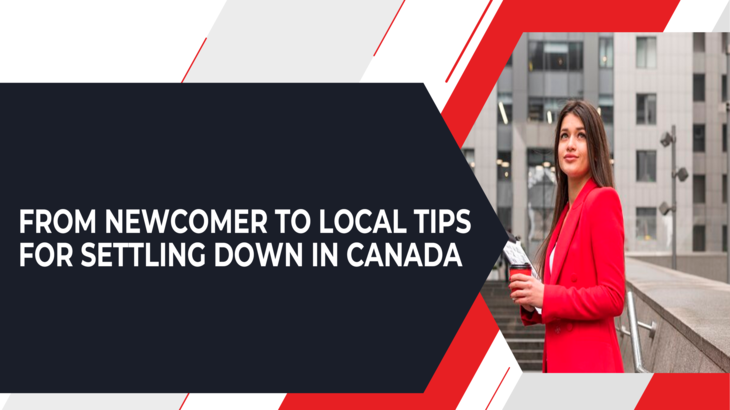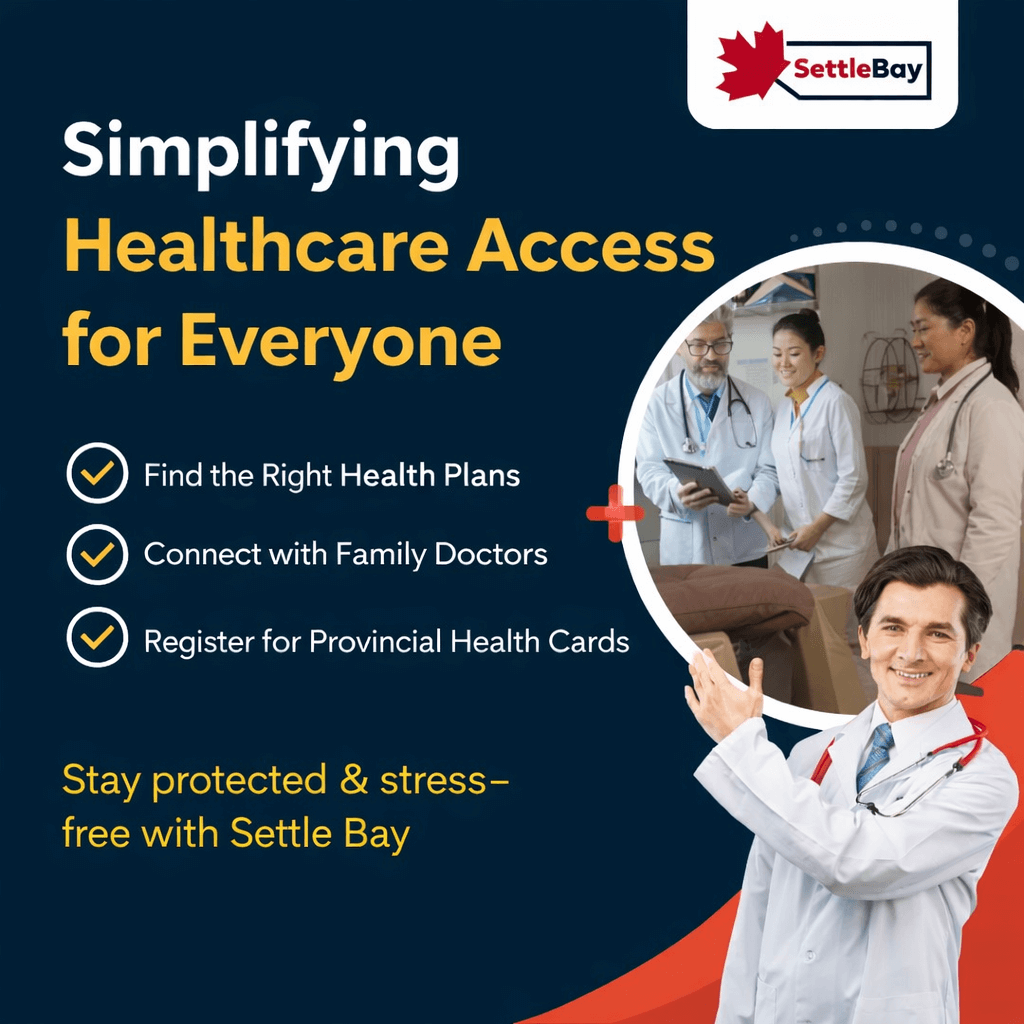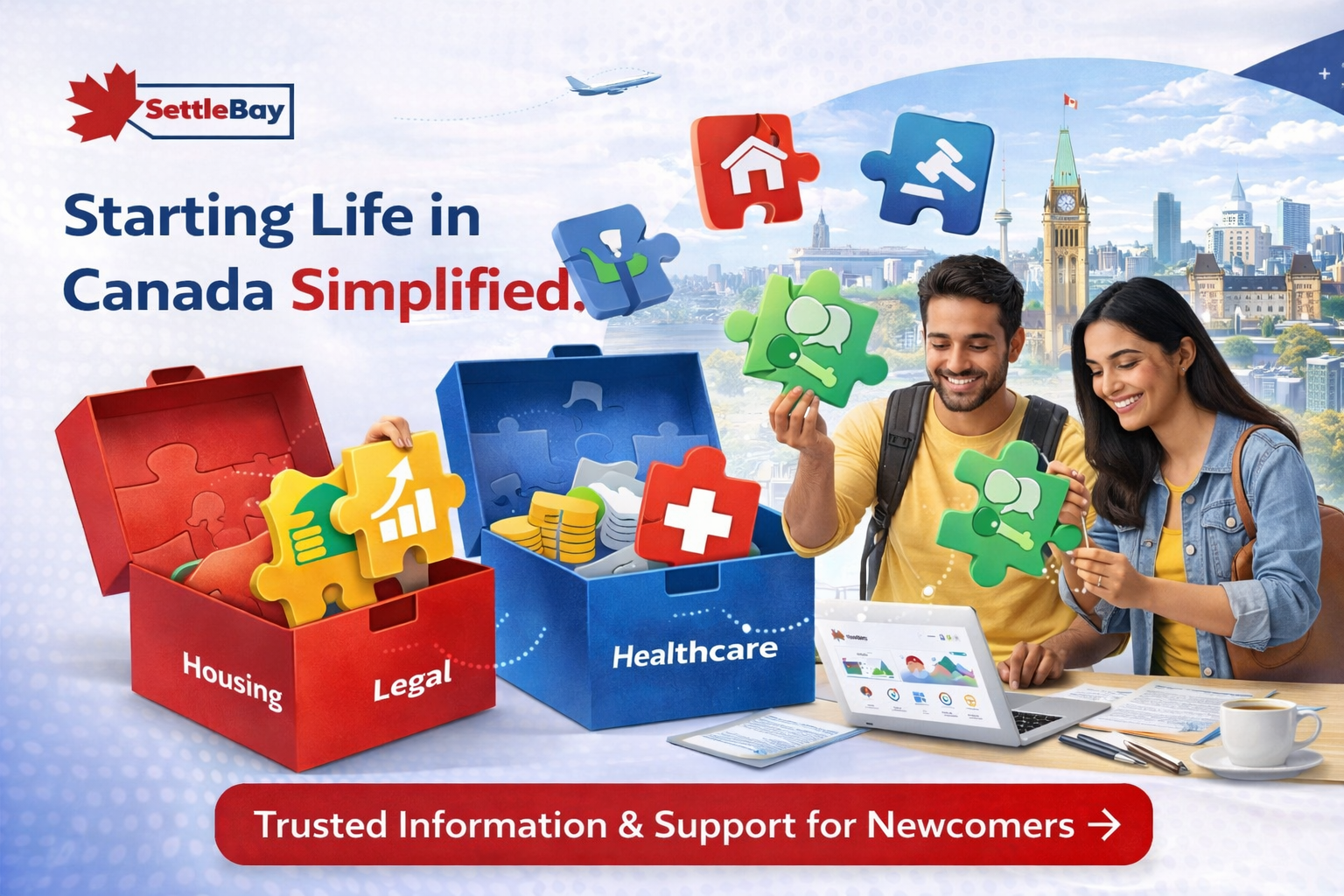Moving to a new country can be both exciting and challenging. As a newcomer to Canada, you’re embarking on a journey of adaptation, exploration, and growth. In this blog post, we’ll explore essential tips to help you transition smoothly from being a newcomer to feeling like a local. Welcome, future Canadian residents! If you're considering making the move to Canada, you're embarking on an exciting journey. Whether you're drawn by the promise of stunning natural landscapes, a high quality of life, or diverse cultural experiences, Canada offers a wealth of opportunities for newcomers. However, transitioning to life in a new country can be daunting. That's why we've put together this comprehensive guide with tips and advice to help you settle down and feel like a local in Canada.
Tips To Settle Down In Canada
-
Research And Plan Ahead: Before you make the big move, it's essential to do your research and plan ahead. Start by familiarizing yourself with the different provinces and cities in Canada to find the best fit for you and your family. Consider factors such as job opportunities, cost of living, climate, and cultural amenities. Websites like the Government of Canada's official immigration portal and local government websites provide valuable information for newcomers.
-
Understand The Immigration Process: Navigating the Canadian immigration system can be complex, but with the right information, it's manageable. Determine which immigration pathway is most suitable for you, whether it's through Express Entry, Provincial Nominee Programs (PNPs), family sponsorship, or other streams. Consulting with an immigration lawyer or accredited consultant can also help ensure that you understand the requirements and procedures involved.
-
Prepare Financially: Moving to a new country involves various expenses, so it's crucial to prepare financially. Budget for costs such as transportation, housing, healthcare, education, and initial settlement expenses. Research banking options in Canada and consider opening a bank account before you arrive to facilitate the transfer of funds and access to financial services upon your arrival.
-
Network And Connect: Building a support network in Canada can greatly ease your transition and help you feel more at home. Join online forums and social media groups for newcomers to connect with others who have already made the move or are planning to. Attend local community events, cultural festivals, and networking gatherings to meet people and make new friends. Don't hesitate to reach out to fellow newcomers or established residents for advice and guidance.
-
Learn The Language: While Canada is a bilingual country with English and French as official languages, proficiency in English is particularly important for newcomers, as it is the dominant language in most provinces. If English is not your first language, consider enrolling in language classes or programs to improve your language skills. Many community organizations and language schools offer free or affordable language courses for newcomers.
-
Embrace Canadian Culture: Canada prides itself on its multiculturalism and diversity, so be open to embracing new cultural experiences and perspectives. Take the time to learn about Canadian customs, traditions, and holidays. Explore local cuisine, music, art, and literature to immerse yourself in Canadian culture. Engaging with the local community and participating in cultural activities can help you feel more connected to your new home.
-
Adapt To The Climate: Canada is known for its diverse climate, ranging from mild to extreme temperatures depending on the region and season. Be prepared for cold winters, especially if you're moving to provinces like Alberta, Saskatchewan, or Manitoba. Invest in quality winter clothing, including insulated jackets, boots, gloves, and hats, to stay warm and comfortable during the colder months. Embrace winter sports and activities like skiing, snowboarding, and ice skating to make the most of the snowy season.
-
Seek Employment Opportunities: Securing employment is crucial for your long-term settlement in Canada. Research job opportunities in your field and explore employment resources such as job boards, career fairs, and employment agencies. Consider volunteering or participating in internships to gain Canadian work experience and expand your professional network. Tailor your resume and cover letter to Canadian standards, highlighting your qualifications and relevant experience.
Settlebay is Giving Some Additional Tips For Our Active Users That List Is Consist Of Which Are all the Mandatory Things Needs To Be Done When We Land In Canada , Take A Look At That
-
Clear Immigration And Customs: Upon arrival, proceed to the immigration and customs area at the airport or port of entry. Present your travel documents, including your passport, visa, and any other required documentation. Answer any questions from the immigration officer truthfully and accurately.
-
Obtain Your Permanent Resident Card (if applicable): If you are a permanent resident of Canada, you will need to apply for a Permanent Resident Card (PR Card) if you haven't already done so. This card serves as proof of your status as a permanent resident and is required for re-entry to Canada if you travel outside the country.
-
Settle In Temporary Accommodation: Arrange temporary accommodation for your initial stay in Canada. This could include a hotel, hostel, or temporary rental apartment Luxury Vacation Rentals In Canada . Make sure you have a comfortable place to stay while you get settled and look for long-term housing options.
-
Apply For A Social Insurance Number (SIN): The Social Insurance Number (SIN) is a nine-digit number issued by the Government of Canada that you need to work in Canada or to access government programs and benefits. You can apply for a SIN in person at a Service Canada office once you arrive in Canada.
-
Open A Bank Account: Research and choose a Canadian bank to open an account. Having a Canadian bank account will make it easier to manage your finances, receive your salary, and pay bills. Bring your identification documents, such as your passport and proof of address, when opening the account.
-
Register For Provincial Health Insurance: Each Canadian province and territory has its own health insurance plan that provides coverage for essential medical services. You need to apply for provincial health insurance coverage as soon as possible after you arrive in Canada. This will ensure that you have access to healthcare services when you need them.
-
Explore Transportation Options: Familiarize yourself with public transportation options in your area, such as buses, trains, and subways. Consider getting a transit pass or card for convenient and affordable travel around the city. If you plan to drive in Canada, research the requirements for obtaining a driver's license and register for a driving test if necessary.
-
Set Up Utilities And Services: Arrange for essential utilities and services to be set up in your new home, such as electricity, water, heating, internet, and phone service. Contact utility providers to schedule installations and transfers, and inquire about any required deposits or fees.
-
Register Children In School (if applicable): If you have school-age children, research local schools in your area and register them for classes. Make sure to provide the necessary documentation, such as birth certificates, vaccination records, and proof of residency, when enrolling your children in school.
-
Explore Community Resources And Services: Take advantage of community resources and services available to newcomers, such as settlement agencies, language classes, employment support programs, and cultural integration services. These resources can provide valuable information, assistance, and support as you adjust to life in Canada.
-
Network And Make Connections: Build a social network and make connections with other newcomers, local residents, and community organizations. Join social groups, attend cultural events, and participate in community activities to meet people and form friendships. Networking can help you feel more connected and supported in your new environment.
-
Learn About Canadian Culture And Customs: Take the time to learn about Canadian culture, customs, and traditions. Familiarize yourself with Canadian holidays, etiquette, social norms, and cultural practices. Embracing Canadian culture will help you integrate into your new community and feel more at home in Canada.
-
By completing these important tasks and steps when you land in Canada, you'll be well on your way to settling into your new life in the country and building a bright future for yourself and your family. Welcome to Canada
Also Read About : Essential Tips For Newcomers In Canada
Conclusion:
Congratulations on taking the first steps towards becoming a Canadian resident! While settling down in a new country may seem daunting at first, with the right preparation and mindset, you can successfully transition from a newcomer to a local in Canada. Remember to research and plan ahead, understand the immigration process, prepare financially, network and connect with others, learn the language, embrace Canadian culture, adapt to the climate, and seek employment opportunities. By following these tips and advice, you'll be well on your way to building a fulfilling life in the Great White North. Welcome to Canada!





Leave a reply